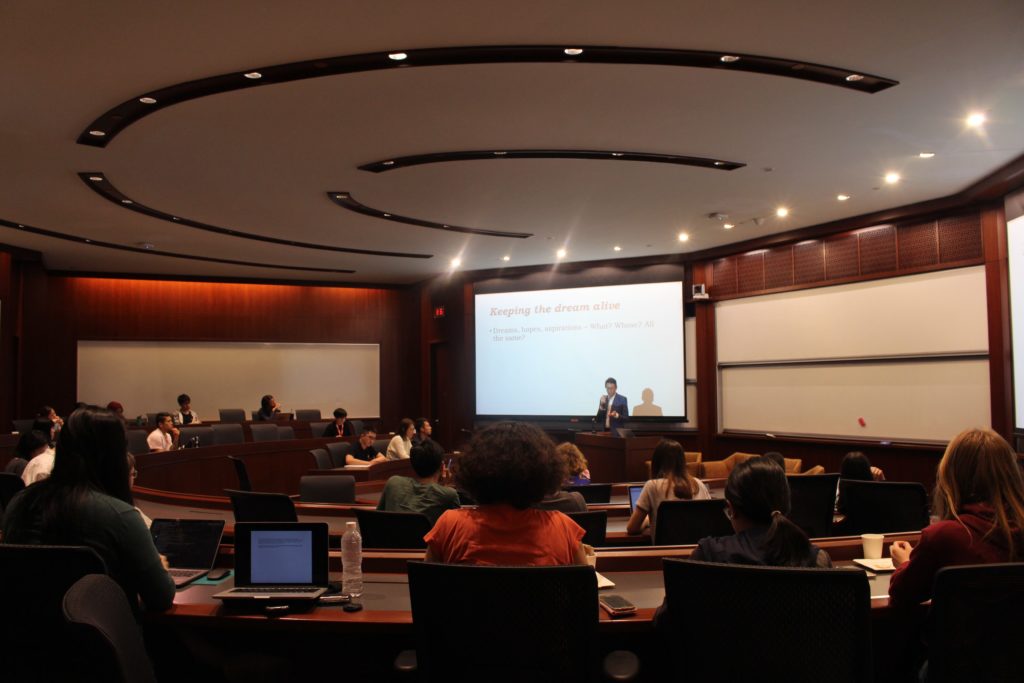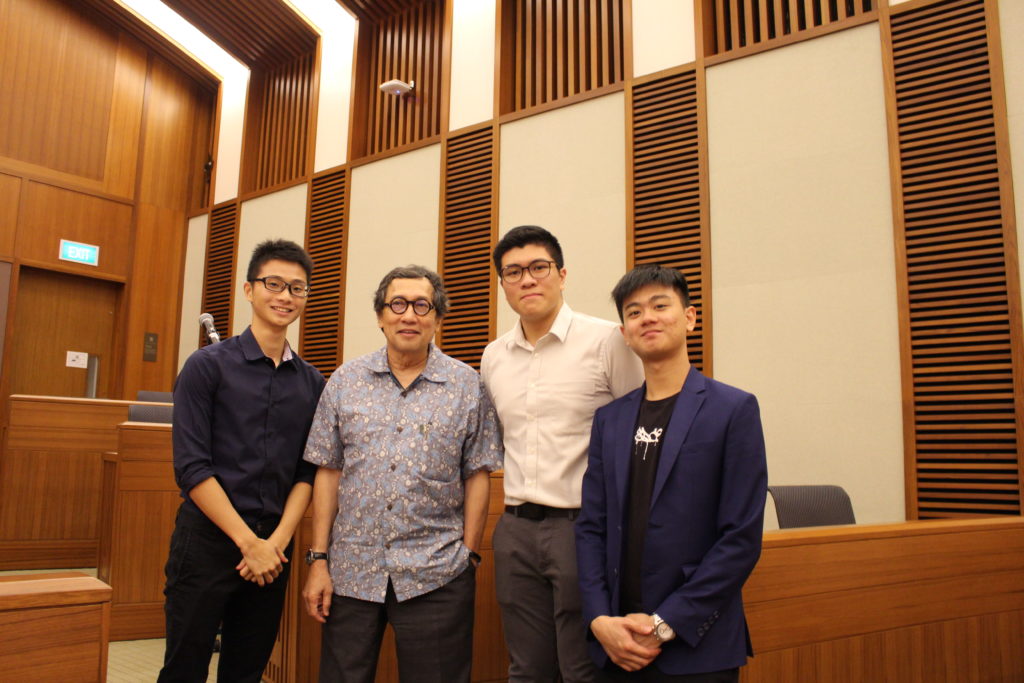Experts share insights into pressing contemporary issues at student-led dialogue sessions
 Image provided by Ng Yi Ming.
Image provided by Ng Yi Ming.
At Yale-NUS, students organise events that enable the community, both within and outside the College, to interact with a diversity of external speakers and panelists who are experts in their fields. Such events enable students to learn outside of the classroom by engaging in meaningful conversations about pressing social and political issues, raising their awareness about what is happening in the broader community beyond Yale-NUS.
Yale-NUS students also take the opportunity to initiate platforms where they can deepen their learning about issues that matter to them. Among the various dialogue sessions and talks organised on campus within the first quarter of 2019 were the ‘Inequality in Education Dialogue: Can a Better Life Still Be Found in School’ on 3 April and ‘United States-China relations, trade war, and Singapore-Malaysia relations’ on 16 February.
The “Inequality in Education: Can a Better Life Still Be Found in School?” Dialogue was part of the Singapore Policy Deep Dive Series, organised by the Economic Development & Inclusion Policy Centre of the Roosevelt Institute at Yale-NUS, a non-partisan, student-led public policy think tank. They chose this topic in light of recent concerns that education no longer performs its intended levelling role in Singapore’s meritocracy.
Speakers with backgrounds in education policy research, economics of education research, and social work shared their insights at this dialogue attended by 50 people, including members of the public such as teachers.
Ms Agnes Chia, Senior Group Director at the Care Corner Centre and former President of the Singapore Association of Social Workers, detailed the fundamental relation between socio-economic status, parenting capacities and ultimately students’ abilities to engage with educational resources. In a similar vein, Associate Professor of Policy & Leadership Studies at the National Institute of Education Jason Tan considered meritocracy’s inherently unequal implications and the difficulties of attributing merit to students in a growing parentocracy.
Touching on the issue of inequality in education, Dr Kelvin Seah, Lecturer from the Department of Economics at the National University of Singapore (NUS), talked about his research which analyses the impact of private tuition on student grades. He explained that those who could afford it would hire higher-quality tutors, hence leading to academically more successful students. In such situations, education fails to be a social leveller.
“The idea behind the Singapore Policy Deep-Dives was to contribute to the national dialogue on key policy issues by bringing in external stakeholders, each tackling complex national issues within their unique fields, to share and discuss their perspectives not only with the audience but also with one another. Such cross-disciplinary discourse can be hard to come by, but is crucial to identifying holistic solutions for Singapore,” said Ng Yi Ming (Class of 2021), Director of Policy and the Head of the Economic Development & Inclusion Policy Centre at the Roosevelt Institute at Yale-NUS.
According to Yi Ming, the Deep Dives have been well-received. Several of the invited speakers were delighted they could share their perspectives further at post-event conversations with other panel members and guests.
“I think the mix of speakers was interesting, and inviting a social worker gave a perspective I have not heard as much in discussions on educational equality,” said Tan Hui Min (Class of 2019), one of the attendees.
Earlier in February, a group of Yale-NUS students – Darren Chong, Natalie Teo, Jiang Zhi Feng and Ng Jun Jie (all Class of 2022) – organised a session where former Ambassador-at-Large and current Chairman of the Middle East Institute at NUS and Senior Fellow at the SMU School of Social Sciences Bilahari Kausikan addressed an audience of around 30 people on pressing topics in international relations: United States (US)-China relations and the two countries’ ongoing trade war, Singapore-Malaysia relations, and Singapore’s foreign policy.
 Mr Kausikan (second from left) with some of the student organisers of the talk. Image by Bilge Arslan for Yale-NUS College.
Mr Kausikan (second from left) with some of the student organisers of the talk. Image by Bilge Arslan for Yale-NUS College.
Mr Kausikan opened with remarks regarding the new ruling coalition in Malaysia and reasons why it fell apart after its victory in the national elections last May, before contrasting multiracial meritocracy in Singapore and race-based nationalism in Malaysia. He noted that Singapore’s foreign policy can be encapsulated in one sentence, “Small states should never behave like small states”, underlining Singapore’s need to have a powerful voice on the global stage.
Turning to US-China relations, Mr Kausikan stated that the nature of the relationship between two countries is strategic competition, using trade as an instrument. He elaborated on the impact of the trade war on China’s domestic affairs in increasing internal criticism against Xi Jinping, finally drawing attention to the Belt Road Initiative.
His insightful talk was followed by a Q&A session, which included other hot topics such as cybersecurity, the tension between Russia and the West concerning Ukraine, the South China Sea Dispute, NATO, Cambodia and ASEAN.
Overall, this talk touched upon many current issues and provided the audience with an insightful overview of geopolitical topics, just as the organisers intended.
“I hope that students are encouraged to explore further and deepen their perspectives on these topics after listening to Mr Kausikan share his experiences and views,” said Jun Jie.





